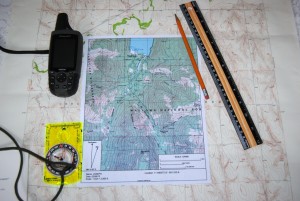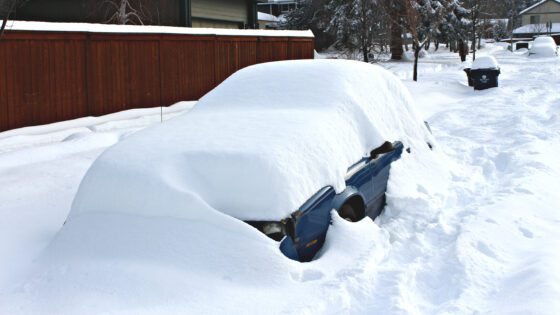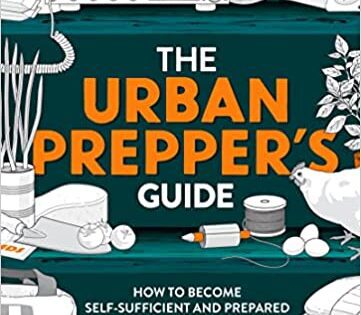Survival myths can kill you, and this latest one making the rounds is particularly dangerous.
by Leon Pantenburg
It’s on the internet, so it must be right. Yeah.
Q: How often do people (maybe subconsciously) follow bad or misleading advice because they read it in social media platforms or a post got forwarded to them?
A: Way too often.

Broken Top near Moraine Lake in Central Oregon’s Three Sisters Wilderness
This myth is being accepted as fact by far too many people:
“If you get lost during a hike and your phone battery is dying or you can’t get service, you should update your voicemail with your location, the time, and an explanation of your situation”: So says a viral post about wilderness safety has been making its way through Facebook, Twitter, Instagram, and TikTok this week.
“The best part of this is that even if your cell phone dies or stops working, voicemail still works, so anyone calling your phone looking for you will hear the message and know where to find you or where to send help,” the post says. (Quoted from recent Backpacker article)
The experts disagree. Check out this Backpacker post.
Halifax Search and Rescue disagreed and posted this strong Facebook warning.
Survival expert Jim Cobb, Editor-in-Chief: Prepper Survival Guide and Backwoods Survival Guide magazines, also warns against changing the voice message. He posted this in the recent The Survival Weekly Dispatch (Please subscribe – the Dispatch is full of valid, useful and interesting information! Check out the Facebook page!)
Survival Tip Tuesday – Common Sense is a Survival Skill
by Jim Cobb
Last week on Facebook, suddenly everyone was sharing a new survival tip regarding cell phones, saying that if you’re stranded or lost in the woods, you should change your outgoing voicemail message to indicate the date/time, where you are, and what your situation is. The idea is that even if your phone dies, people will still get that information if they call you and thus can alert the authorities.
I’d say I saw this tip come across my FB feed easily 30 times from various people and groups in just a couple of days. On the surface, it sounds like a great idea, right? However, it starts to fall apart quickly when you apply a little logic and common sense.

Navigation gear is critical to safe travel in the wilderness. (Blake Miller photo)
You can’t change your outgoing voicemail message unless you have a cell signal. If you have a signal, then you should be calling for help. Texting uses less power and bandwidth, but can be inconclusive as to whether anyone actually sees the message. I’d much rather make definitive contact with someone, such as a 911 dispatcher. Being able to send them a screenshot of your GPS map showing your location would be helpful as well.
The larger issue here is that so many people shared (and are still sharing) this whiz-bang awesome bit of survival lore without giving it any thought whatsoever. This happens over and over in the survival/prepper niche, to the extent that when you point out why the tip isn’t really a good idea, you get your butt chewed by people who are utterly convinced that since they’ve seen it posted so often, by God it MUST be true!
Like I’ve often said — you can lead a person to knowledge, but you can’t make ‘em think.
When you read some new bit of information, particularly as it relates to survival or disaster readiness, think it through. Does it pass the sniff test, so to speak? Does it make sense? Take 10 seconds to apply some common sense before you jump on the bandwagon and share it around to friends and family.
I realize that’s a lot to ask when it comes to the split-second attention span that’s prevalent on social media, but we should try to do all we can to prevent the spread of bad information. We sometimes say that common sense isn’t quite so common anymore. I think it’s still there; it just isn’t used as often as perhaps it should.
Many disasters, not all certainly but definitely an awful lot of the personal crises that occur, happen as a result of making a poor decision. Those decisions may have gone another way, and had a more positive result, had the person taken time to use common sense and logic to determine which way to proceed.
As for safety protocols when heading into the wilderness, here are a few pointers:
1) Always let someone in on your plan. Tell a responsible person where you’re going, when you’re leaving, and when you plan to return. They should be instructed that if you don’t contact them by the anticipated return time, and they’re unable to reach you, they should alert the authorities that something may have gone awry. (Write a note before leaving.)
2) Always have with you what you might need to self-rescue, including at least a minimal amount of survival gear, along with practice in using all of it.
3) If you’re heading into truly remote areas, a personal locator beacon or similar sort of gear is advisable. They aren’t infallible, they aren’t perfect, but they could give you the advantage you need to get back home.
Please click here to check out and subscribe to the SurvivalCommonSense.com YouTube channel – thanks!






Leave a Reply